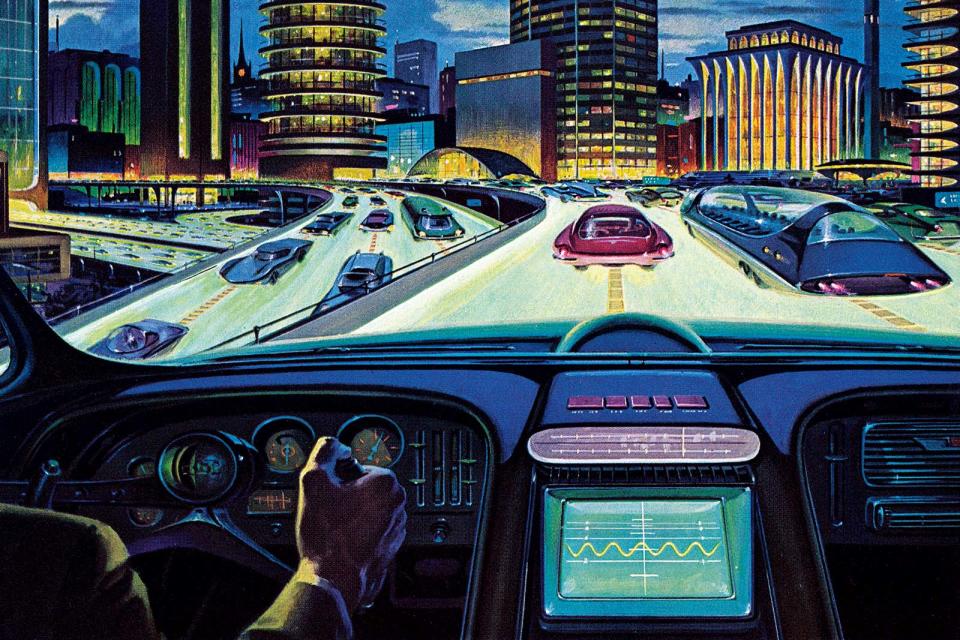From the archive: looking ahead to our atomic future

Optimism of ‘atomic age’ inspired a whole new school of design
“CITY OF 300,000 VANISHED IN VAST BALL OF FIRE. Bomber crew in black spectacles. Heat felt 10 miles away.”
Can you imagine seeing that on the front page of the Daily Mail and feeling a reaction of anything other than abject terror and existential dread? Nor me, yet the nuclear bombing of Japan that ended the war was immediately followed by “speculation upon the possibilities of harnessing atomic power for peaceful purposes”, according to an Autocar article printed just four months later.
JT Thornber, one of Britain’s wartime nuclear researchers, continued: “The technique of producing power from atomic energy is already in existence, and its application to locomotion is imminent, in so far as [atomic bomb inventor] JR Oppenheimer has said that the Americans will have a railway locomotive running on atomic power within two years. There is no technical reason why a car could not be running in a like manner within the same time.
“The practical difficulties, however, are numerous and mainly concern the dangerous nature of the materials employed. The danger of an unexpected explosion can be very well guarded against, but the efficient shielding of radiation, which destroys life in a manner far more ghastly than a mere explosion, would be an absolute necessity.
Enjoy full access to the complete Autocar archive at themagazineshop.com
The fission of uranium-235 produces two unstable particles which decay rapidly into the elements krypton and barium. The minutest particle of either of these would be capable of inflicting on the population of a large area a disease which can only be described as galloping cancer.

“Whether it will be possible to risk such lethal constituents in a vehicle so vulnerable as a car is a question which cannot yet be answered with certainty.

 Yahoo Autos
Yahoo Autos 